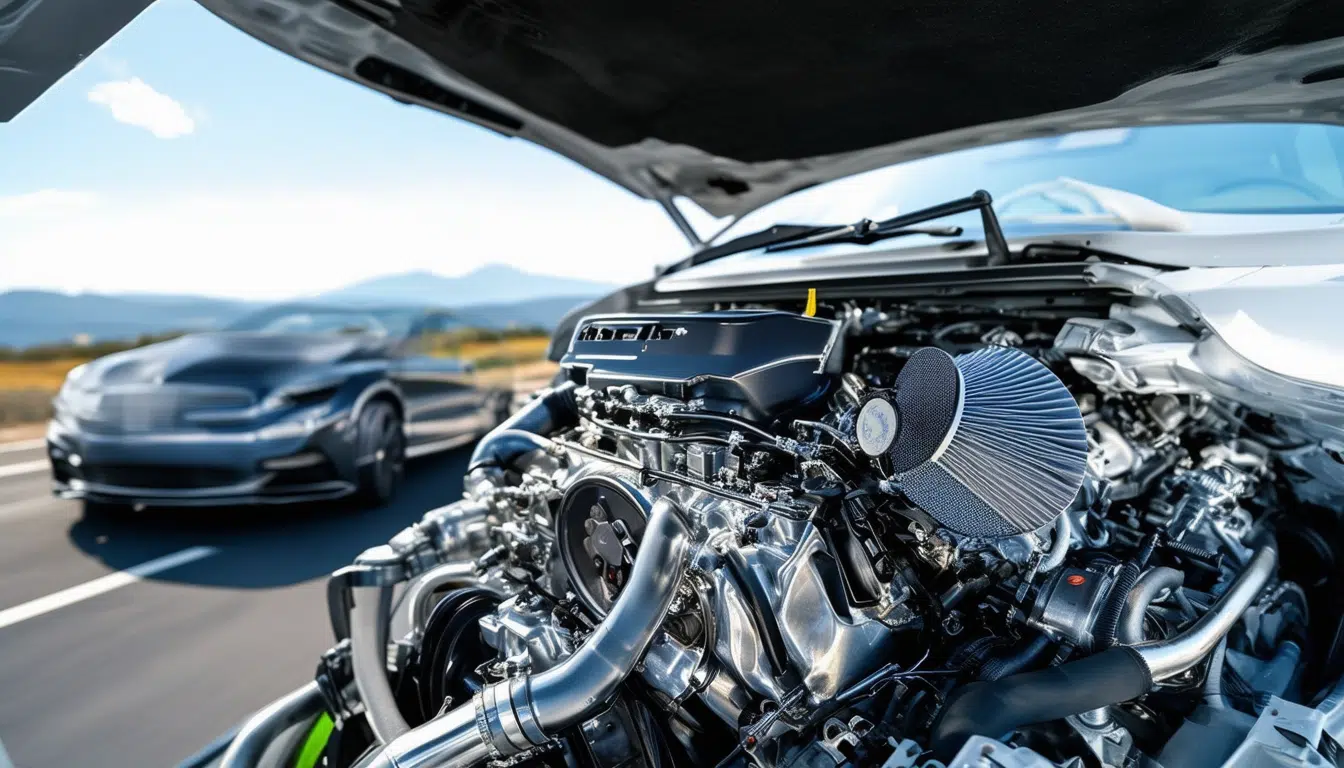The fuel efficiency and the impact of a well-maintained engine

Fuel efficiency is a crucial aspect today, not only to save money but also to reduce the environmental impact of our vehicles. A well-maintained engine plays a fundamental role in fuel performance, as it optimizes combustion and minimizes wear on internal parts. Decisions regarding regular maintenance and the quality of fuel used can significantly influence fuel economy and, consequently, pollutant emissions. Therefore, understanding the relationship between engine care and energy efficiency is essential for any car owner looking to be more responsible with their environment and their finances.
A well-maintained engine is crucial for maximizing a vehicle’s fuel efficiency. Throughout this article, we will examine the factors that affect fuel performance, the importance of regular maintenance, and how these elements benefit not only the driver’s wallet but also the environment.
Factors Affecting Fuel Efficiency
The fuel efficiency of a vehicle can be influenced by multiple factors, both internal and external. Among the internal aspects, engine size and the type of fuel used play a fundamental role. Larger engines generally consume more fuel compared to those with smaller displacements. In turn, the quality of fuel is also decisive; good quality fuel ensures more efficient combustion and reduces residue buildup in the system.
On the other hand, weather conditions and the use of climate control also impact performance. Extreme temperatures can force the engine to work harder, resulting in higher fuel consumption. Tire pressure and vehicle weight are other crucial factors to consider, as both affect resistance and, consequently, consumption efficiency.
The Importance of Engine Maintenance
Proper maintenance of the engine is essential to ensure that a vehicle operates efficiently. Regular inspections, which include oil changes, filter checks, and fuel injection system maintenance, can prevent unnecessary wear that affects engine efficiency. An optimally operating engine consumes less fuel to produce the same power, significantly reducing the cost per kilometer traveled.
Additionally, a neglected engine may face issues such as increased wear of internal parts, leading to higher fuel consumption and an increase in pollutant emissions. Investing in maintenance not only saves money in the long run but also contributes to more responsible and sustainable driving.
Economic Benefits of a Well-Maintained Engine
The economic impact of keeping an engine in good condition is considerable. A fuel-efficient vehicle reduces operating costs, translating into significant savings for the owner. Regular maintenance can minimize fuel consumption, thus benefiting the family budget.
Moreover, a well-cared-for engine tends to have a longer lifespan, which means less spending on repairs and a lower risk of mechanical failures. Drivers who adopt a proactive approach regarding their vehicle’s maintenance not only protect their investment but also contribute to a cleaner environment by reducing pollutant emissions.
Environmental Impact of Fuel Efficiency
The relationship between fuel efficiency and environmental impact is undeniable. A well-maintained engine not only helps save fuel but also decreases emissions of harmful gases. This translates into improved air quality and a reduction in the greenhouse effect.
By choosing maintenance methods that maximize fuel efficiency, we contribute to the fight against climate change. Sustainable practices, such as using high-quality fuels and properly maintaining the fuel system, are steps that can be taken from home to create a positive change.
Tips for Optimizing Fuel Efficiency
For those looking to improve the fuel efficiency of their vehicle, here are some practical tips. First, make sure to have regular mechanical inspections and follow the manufacturer’s recommendations. Second, avoid excessive use of air conditioning, as this can increase fuel consumption.
Additionally, maintaining proper tire pressure and avoiding unnecessary loads are also effective strategies to reduce consumption. Finally, adopting a smooth driving style and avoiding sharp accelerations not only increases efficiency but also prolongs the life of the vehicle.
Conclusion
Proper maintenance of an engine is crucial not only for fuel efficiency but also for the financial health of the driver and the health of the planet. By understanding and applying these principles, significant impacts can be achieved on both the economy and the environment while enjoying a vehicle that operates optimally.
Fuel Efficiency and the Impact of a Well-Maintained Engine
The proper maintenance of a vehicle’s engine is fundamental to achieving optimal performance in fuel consumption. An engine that receives regular attention and is adjusted to the manufacturer’s standards not only extends its lifespan but also operates more efficiently. Engine parts, such as air and oil filters, should be cleaned or replaced regularly to avoid blockages that can affect performance.
The quality of the fuel used is another crucial aspect that directly impacts engine efficiency. Using high-quality fuel ensures cleaner and more efficient combustion, reducing residue buildup and improving the vehicle’s operating economy. Conversely, using low-quality fuels can lead to greater engine wear, resulting in increased fuel consumption.
Weather conditions also play an important role in fuel efficiency. Factors such as temperature and altitude can affect engine performance. However, a well-maintained engine can adapt better to these variations, ensuring more efficient consumption under different conditions.
Additionally, an engine in good condition not only saves fuel but also contributes to the reduction of pollutant emissions. This is essential in a context where concern for the environment is increasingly urgent. Lower fuel consumption translates into fewer emissions of harmful gases, thus promoting more sustainable driving.
Therefore, periodic and proper maintenance of the engine is not only a factor for economic savings but also crucial for environmental sustainability, achieving a balance between fuel efficiency and responsible driving.





